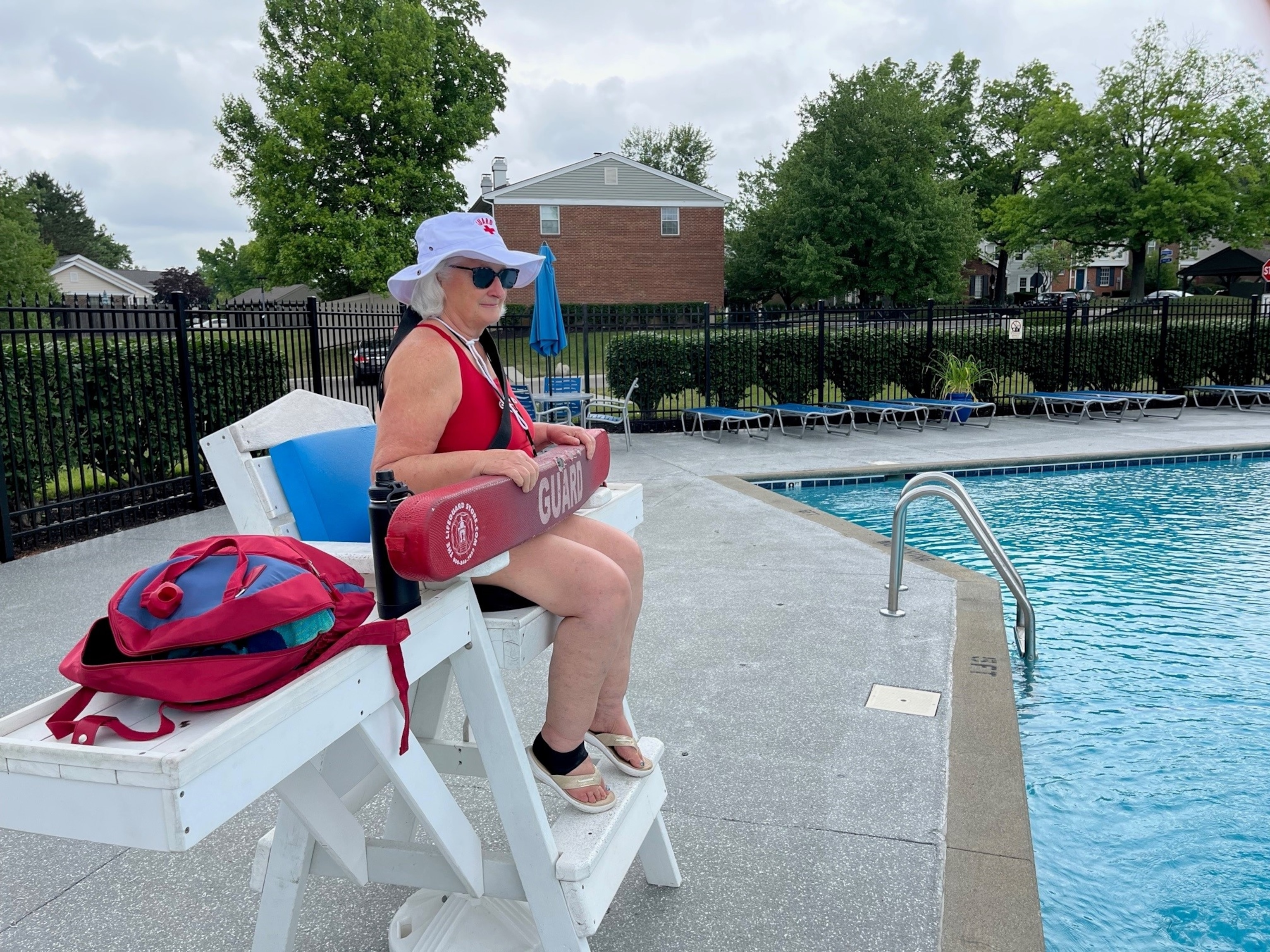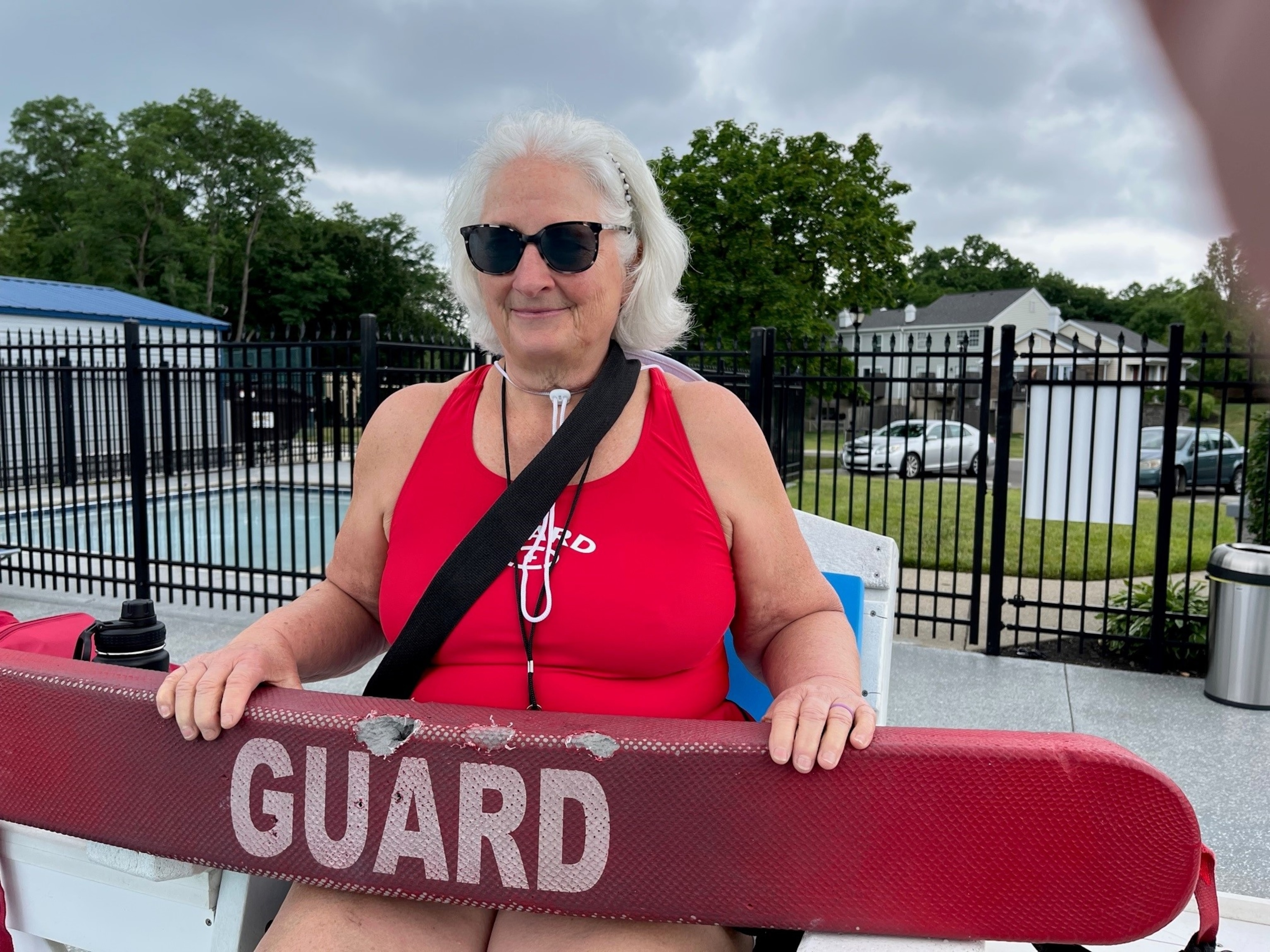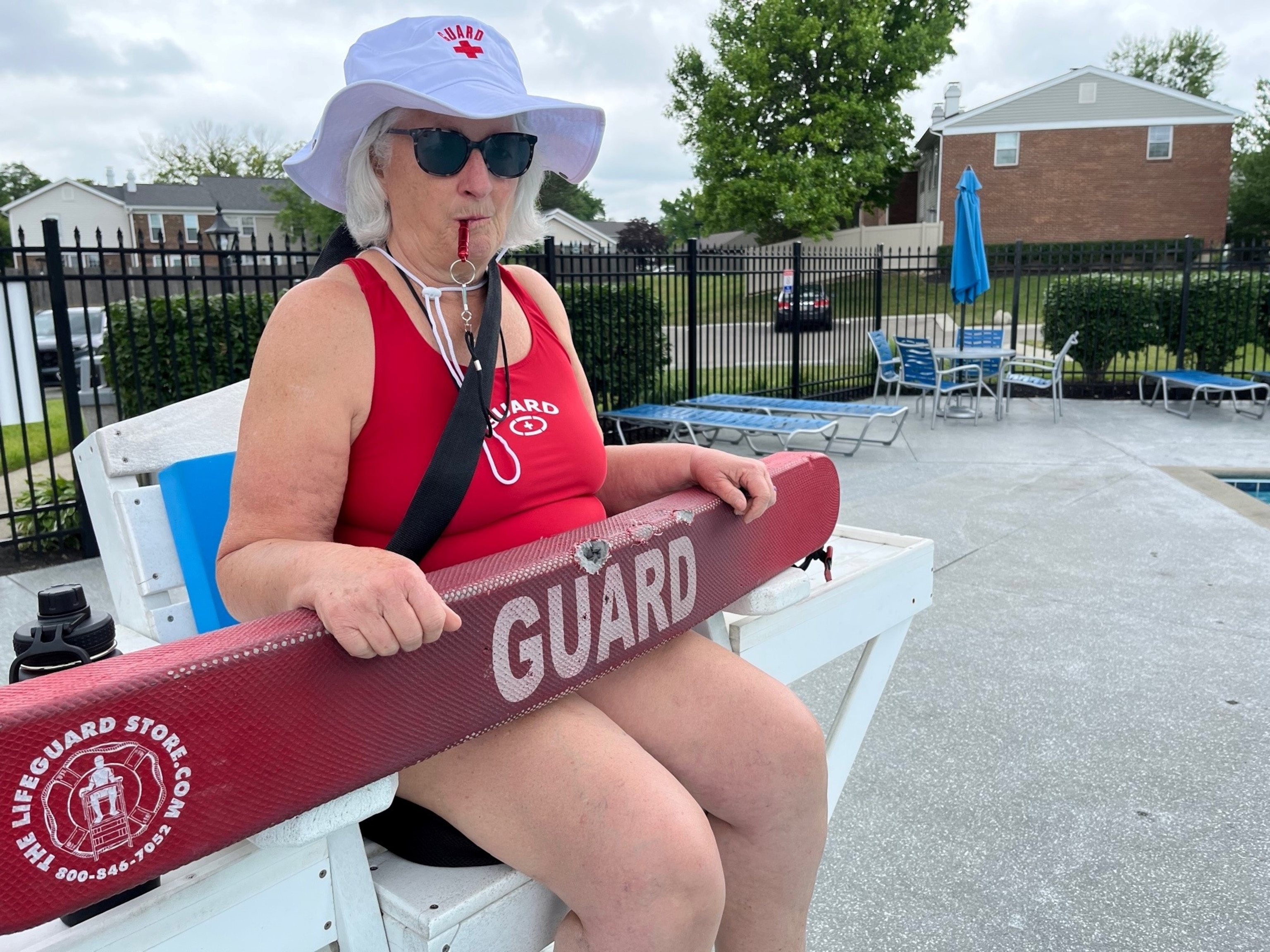66-year-old grandmother becomes a lifeguard amid shortage
Gail Rodgers didn't let her age deter her from jumping back into the pool.
When Gail Rodgers saw her local pool couldn't open due to a lifeguard shortage, she decided to take the plunge and come out of retirement to become a lifeguard herself.
The longtime resident and board president of the Montgomery Towne Condominiums of Sycamore Township, Ohio, saw the need and heard from other residents who didn't want to see the pool closed either.
"I thought, 'Well, I did this lifeguard thing back in the late '60s' so I thought maybe I can do this again," the 66-year-old retired IT consultant told "Good Morning America."

Rodgers had trained to be a lifeguard over 50 years ago but didn't work as one, so she needed to brush up on her skills.
"It's hugely different. The lifeguard back then would sit in the chair and might blow the whistle occasionally to tell you to stop running or so," Rodgers recalled. "They had no props, no flotation device, all they had was a whistle. So they were really more police than anything else."
"I went and got the precertification just to make sure that I could pass the physical test first, which I found out I could, so I was happy about that, and then I went through the full training," Rodgers continued.

According to Jeff Blume, president of Cincinnati Pool Management and Rodgers' boss, the physical exam isn't exactly a walk in the park.
"[Lifeguard candidates] have to swim a 300-yard length and that is 12 laps at a traditional swimming pool. They have to tread water for the allotted amount of time and then they have to swim a length and then submerge and grab a 10-pound brick off the bottom of the pool," Blume explained to "GMA."

But Rodgers, a mom of two and grandmother of three, wasn't deterred. She passed her physical test, earned her certification and officially started as a part-time lifeguard on May 27.
"It's been fun watching the kids playing with their parents and people enjoying the nice weather in the pool. It's been a lot better and more pleasant than I expected it to be," Rodgers said.
Blume said it has also been "a joy" to have Rodgers on their lifeguard staff.
"These individuals don't walk in your door that often, so you cherish when they do walk in the door and what they bring to the table," he said, adding, "It's not a job to her, it's an experience, and that's critical."

Rodgers also recommends her peers and other older adults consider lifeguarding as well, especially since pools across the U.S. continue to face lifeguard shortages.
"I hadn't done a lot of swimming in a long time so I was a little concerned myself, but I think a lot of people could be doing this, and it might be good for them to get out and do this even. [It] pays well. You can set your own schedule. Doesn't get much better than that," Rodgers said.
Blume added, "I think there's maybe a stigma or a fear of 'I can't do this' or 'That's not for me. That's for the young kids,' or something like that. So, there's a lot to overcome … [but] if people wanted to do it, we could help them with the skills and give them a little bit more of a boost before they actually take the class, kind of like a pre-course. If people realize that that was an option, I think that they might not look at the skills test as such a steep mountain to overcome."







